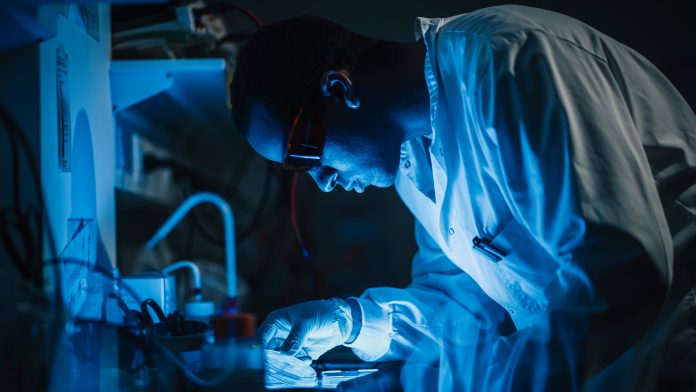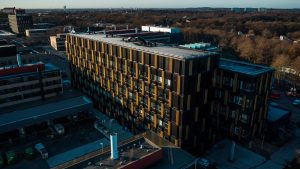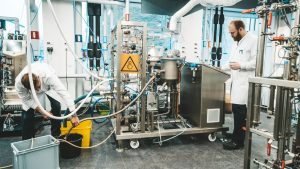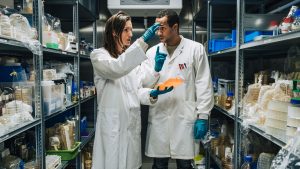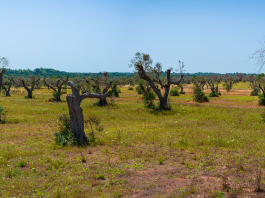More data-driven approaches, an integrated Pre-Pilot Plant facility, and a Biofoundry are some of the key drivers in the Novo Nordisk Foundation Center for Biosustainability’s vision of developing efficient bio-manufacturing methods for chemical compounds and protein-based products.
Over the next five years, Denmark’s largest foundation, the Novo Nordisk Foundation, will allocate a total of €100m to the DTU Biosustain research centre, for which the foundation also provided the economic framework when the centre was established in 2011. In line with the Technical University of Denmark’s 2020-2025 strategy, the centre focuses on developing technology for people and works strategically towards the United Nations 17 Sustainable Development Goals (SDGs).
The additional funding will ensure that the centre can continue its research activities and become a world leader in generating knowledge and technologies for the sustainable production of biochemicals and green consumer products. By mastering the design and manufacturing of cell factories, it also provides an important framework for venturing into new scientific areas like computer aided design and genome scale learning.
One of those new areas will be to establish a data infrastructure, a so-called ‘Biofoundry’, to manage and analyse large datasets. This is something that has become crucial given the latest technological developments within genome-scale analysis and advanced robot technologies. Because new technologies have been a game-changer when it comes to generating large amounts of data, the need for a strong infrastructure is in high demand to spearhead the development of new cell factories with the help of Big Data.
The focus at university-level on more data-driven approaches proves that Big Data has not only become a focal point in large technological companies, but that it has also caught the attention of scientists as a tool to develop smarter and greener products.
While it is still a relatively new research area, The Novo Nordisk Foundation Center for Biosustainability has already been on quite a journey since its establishment in 2011, and today the centre employs more than 300 people, coming from all over the world. International competition to recruit the greatest talents is fierce. However, with the latest grant from The Novo Nordisk Foundation, the centre is able to offer a world-class research environment for science, innovation, and entrepreneurship.
Focus on spinouts and international partners
The centre does not expect to drive the development on its own, and future success will depend on an expansion of international collaboration with other research centres. Furthermore, while the centre has already significantly increased its collaboration with industrial partners, it is still on the look out for new collaboration agreements to ensure that scientific work can be translated into new products for the benefit of society.
Dr Bernhard Palsson, Chief Executive Officer at The Novo Nordisk Foundation Center for Biosustainability, said: “We have already established 27 spinout companies, and we will continue to create others, strengthening Danish society and creating new and greener workplaces. The research conducted at the centre will give Danish industry easier access to ground-breaking science in the fields of industrial biotechnology and bio-industrial production, which are traditional areas of strengths for Denmark. This could lead to an increase in the number of export ventures and workplaces in Denmark.”
Some examples of spinouts springing from DTU Biosustain in the past include:
- BioPhero ApS – a biotech company that uses pheromones to develop pest control;
- Biosyntia ApS – a company using microbes to make vitamins;
- SNIPR Biome Ltd, which is using CRISPR-technology to precisely target ‘bad’ microbes in the gut; and
- Enduro Genetics ApS – a biotech company providing a proprietary deep sequencing technology platform to optimise fermentation processes.
Dr Andreas Worberg, Director Translational Core at The Novo Nordisk Foundation Center for Biosustainability, said: “Both technology companies with software, hardware, and bio-products, as well as service companies, were founded by different types of entrepreneurs through the lifetime of the centre so far.”
Bridging the gap between science and industry
To ensure the acceleration of technologies with the potential of going to market, in recent years the centre has established a Pre-Pilot Plant facility suited for the testing and optimisation of cell factories at pre-industrial scale.
The Pre-Pilot Plant is part of the Center’s Translational Core unit, which works with strain engineering, economic market modelling (econometrics), analytics, screening, testing, and purification. In short, the translational core bridges basic research with commercialisation. Thus, the facility is a pivotal brick in turning small-scale science into real business.
“Testing and scale-up require significant investments and often venture capital. These investments are quite risky, and, therefore, many investors are hesitant or negative. Our job is to show that the cells can perform in near-industrial scale settings, so investors will be more at ease and thus more likely to invest,” Worberg said.
The Pre-Pilot Plant targets integrated bioprocess development, which takes place after a microbe has been designed and built and to some extent tested on a small scale, while downstream processing is about optimising separation conditions, production and securing a good purification process. Bioprocess optimisation is a significant aspect, because if the yield is too low or if purification is too expensive, the business model likely fails.
The Pre-Pilot Plant typically targets products with a market price of approximately US$1,500-$50,000 per metric tonne, which are typically higher-value commodity molecules found in materials, cosmetics, food and feed supplements and additives.
About the Novo Nordisk Foundation Center for Biosustainability
- Approximately 300 staff members globally
- From 46 nationalities
- Gender distribution: 47% women, 53% men
- Our headquarters are located at DTU in Lyngby, Denmark. Further, our international teams of scientists work at universities all over the world – University of California, San Diego (UCSD), USA; UC Berkeley California, USA; Chalmers University, Sweden; KTH, Sweden; KAIST, South Korea; and University of Queensland, Australia.
- We are part of a cluster of Novo Nordisk Foundation Research Centers that aim to attract the world’s best researchers, thereby creating an internationally oriented and innovative research environment. Read more about the Novo Nordisk Foundation Research Centers here.
Dr Andreas Worberg
Director, Translational Core
The Novo Nordisk Foundation Center
for Biosustainability
+45 93 51 89 00
andwor@biosustain.dtu.dk
Tweet @DTUBiosustain
www.biosustain.dtu.dk
www.facebook.com/biosustain
www.linkedin.com/company/the-novo-nordisk-foundation-center-for-biosustainability
Please note, this article will also appear in the third edition of our new quarterly publication.

